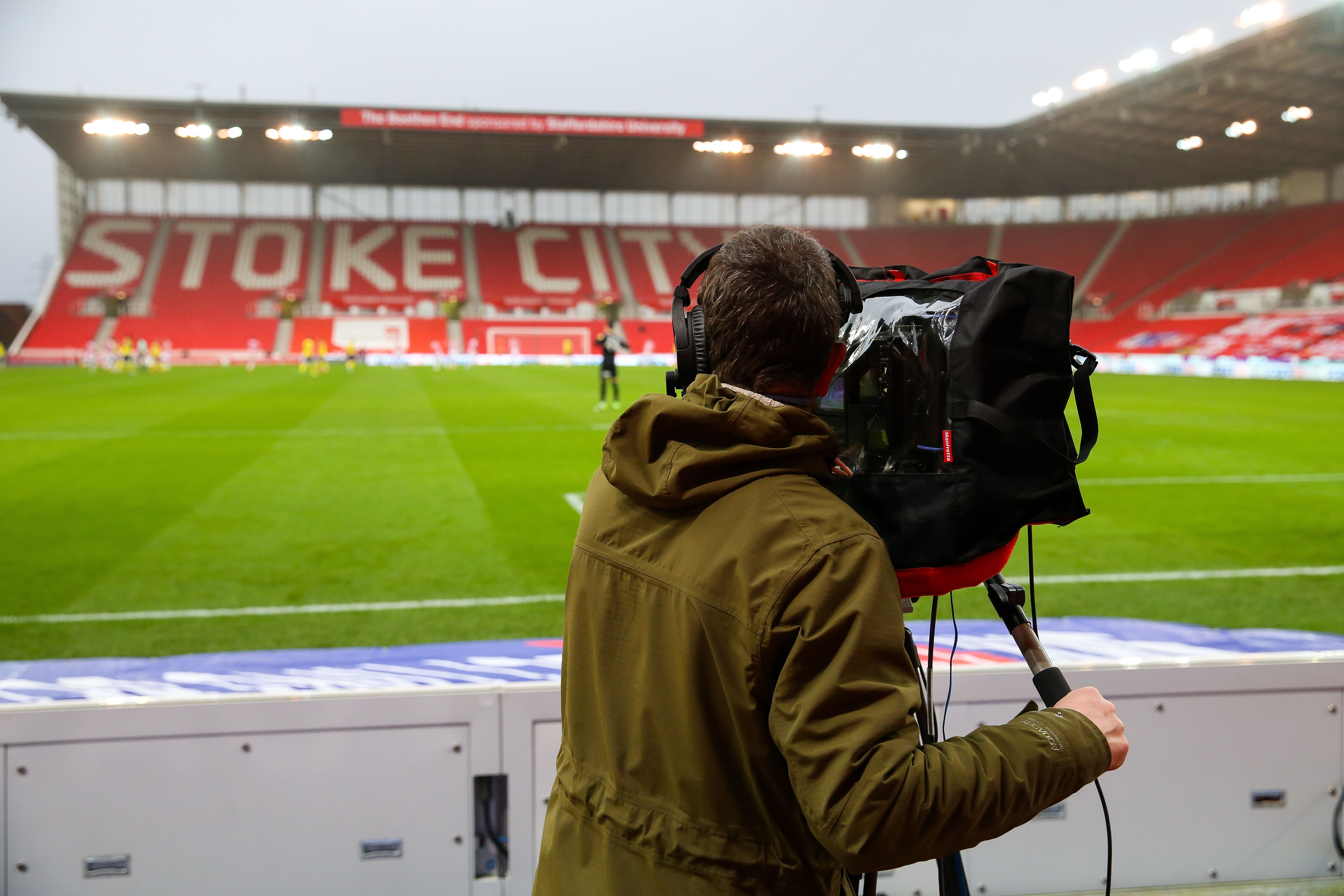EFL’s potential deal with DAZN ‘could help close the gap with Premier League’
The streaming platform is understood to be keen on a long-term deal with the EFL of at least five years.

Your support helps us to tell the story
From reproductive rights to climate change to Big Tech, The Independent is on the ground when the story is developing. Whether it's investigating the financials of Elon Musk's pro-Trump PAC or producing our latest documentary, 'The A Word', which shines a light on the American women fighting for reproductive rights, we know how important it is to parse out the facts from the messaging.
At such a critical moment in US history, we need reporters on the ground. Your donation allows us to keep sending journalists to speak to both sides of the story.
The Independent is trusted by Americans across the entire political spectrum. And unlike many other quality news outlets, we choose not to lock Americans out of our reporting and analysis with paywalls. We believe quality journalism should be available to everyone, paid for by those who can afford it.
Your support makes all the difference.A deal with DAZN to stream all EFL matches and end the Saturday afternoon blackout could help the competition close the financial gap to the Premier League, sources close to the bid have claimed.
The streaming platform is understood to be keen on a long-term deal with the EFL of at least five years. The league issued an invitation to broadcasters last month to submit offers for its rights from 2024-25 onwards, and that process is still ongoing.
DAZN’s offer is reported to be worth £200million a year and would require the lifting of the traditional Saturday afternoon blackout period, which blocks the broadcast of games at any level in England between 2.45pm and 5.15pm.
Sources close to DAZN’s bid feel the EFL is currently “underexposed”, with some clubs in League One and League Two never featuring on television.
The partnership “could help close the gap with the Premier League – which is good for the whole league structure”, sources say.
The original purpose of the Saturday blackout was to protect live attendances and grassroots participation, but sources close to the DAZN bid believe the deal would help create equal billing for all 72 clubs, allowing them to grow their fan bases and increase commercial revenues.
“All recent evidence points to the more matches that are broadcast, the better it is for attendances,” the source said.
The blackout is imposed under Article 48 of UEFA’s statutes. Currently, the English Football Association is one of only three UEFA member associations which has a request in to apply the block.
It allows an association to nominate “blocked hours” when no broadcasts can take place from within UEFA territories. The article stipulates that in order for it to be applied, 50 per cent of the top two division matches must be played at the same time.
EFL chairman Rick Parry told PA in 2021 that his organisation would not rule out making a request to scrap the blackout in its future broadcast deals.
He said: “We are almost unique in Europe now in having a blackout period. I’m not presuming that it goes, but equally, if we’re looking at streaming, at new technologies and new broadcasters, we will probably have to be open-minded in terms of scheduling.
“And I know that at the EFL we will be looking at these things in any event. Our TV deal is up in 2024 and unusually we will be going ahead of the Premier League.
“Already our people are putting a lot of time and effort into studying developments looking at different potential strategies.”
Sources close to the bid believe DAZN is “uniquely placed” to help clubs target the next generation of fans, because of its digital and social capabilities.
The Football Supporters’ Association said: “Supporters’ groups have always been supportive of the 3pm blackout and our football pyramid is arguably the best in the world with matchday attendances all the way down to amateur levels dwarfing that of other countries. That’s something we should be proud of – and we don’t want to lose it.
“The feeling is that the blackout helps keep attendances high at all levels, as supporters are more likely to consistently support their local club if the 3pm slot is kept clear of live broadcast matches. Once the blackout’s gone, it’s probably gone for good, regardless of the consequences.”